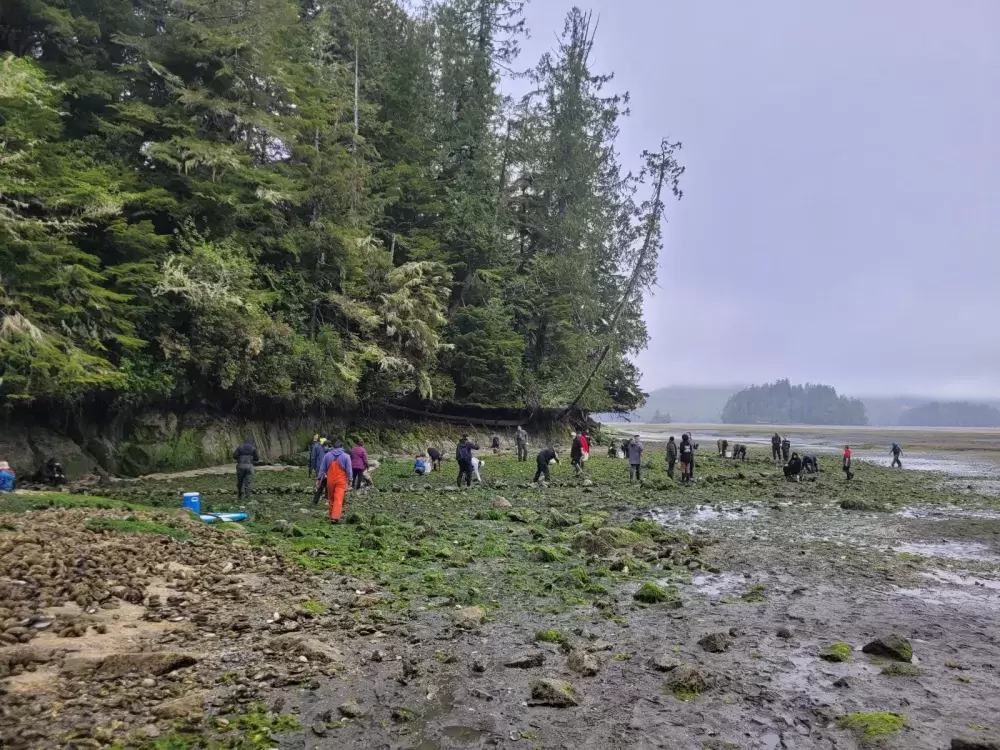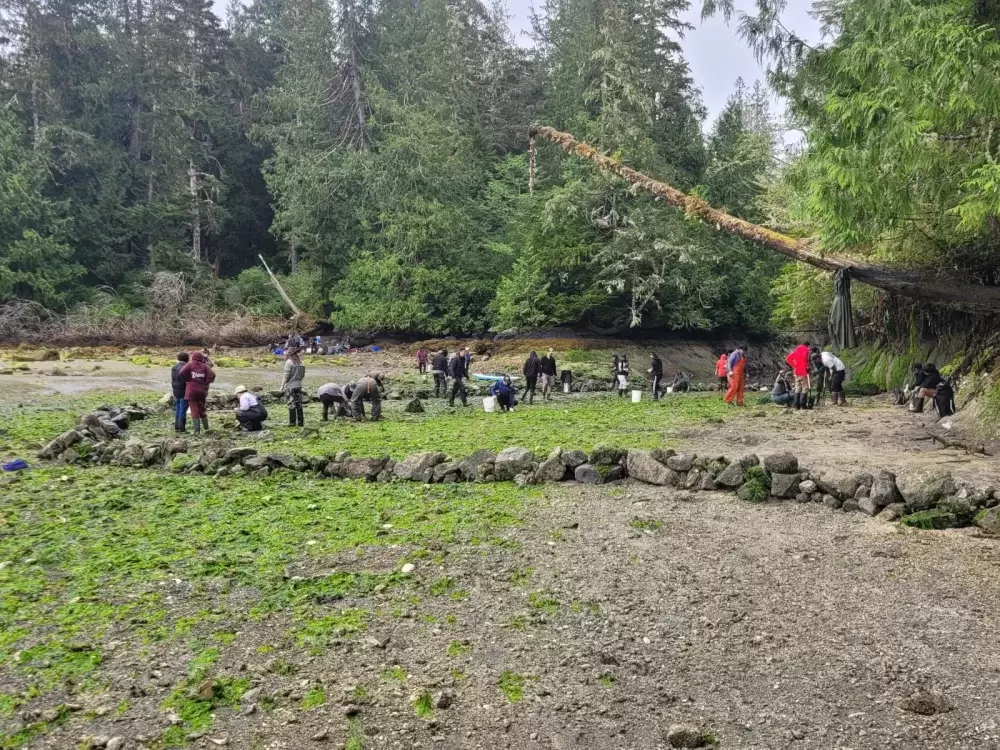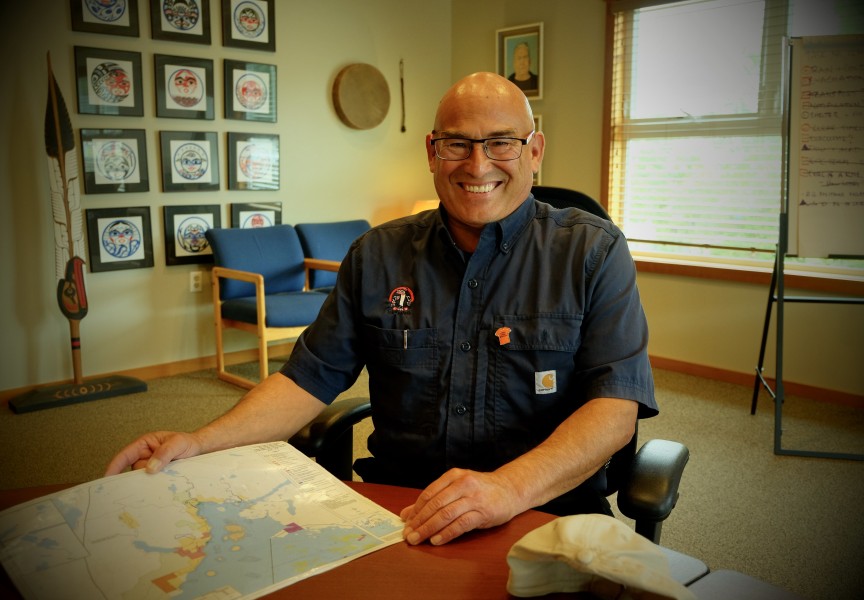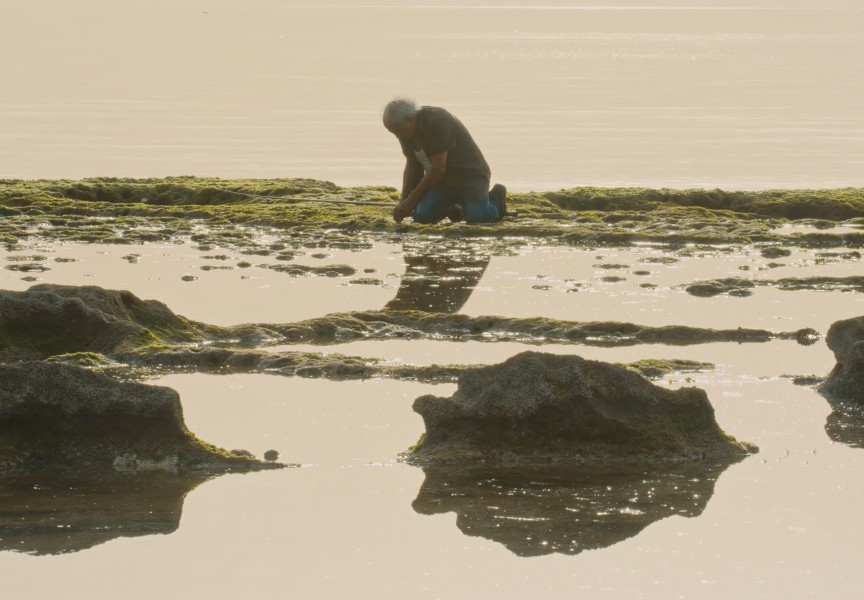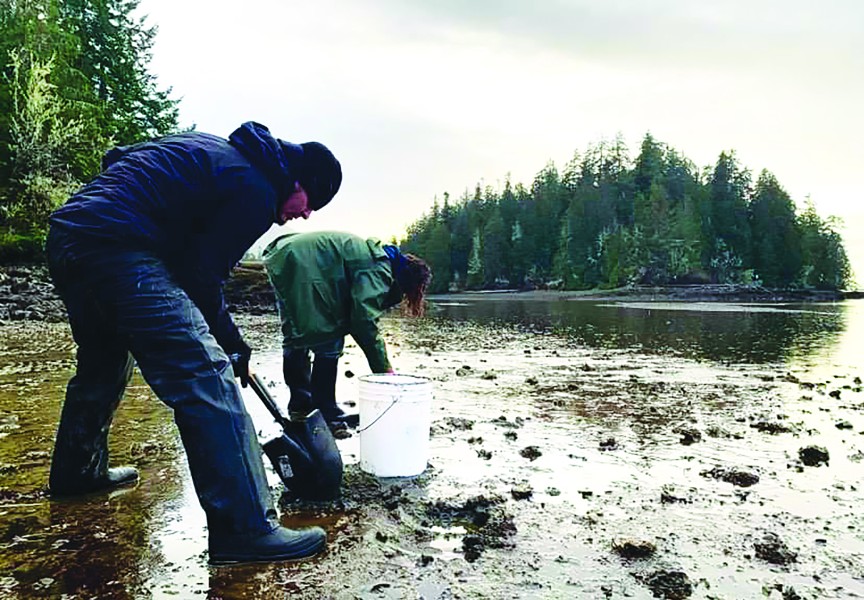The Nuu-chah-nulth Youth Warrior Family is bringing renewed energy to traditional seafood gardens along the west coast of Vancouver Island.
Youth Warriors from eight nations, aged 12 to 25, are being supported by their elders, community mentors and external experts to restore, manage and celebrate clam gardens. This traditional practice used by Indigenous communities along the coast will help enhance the habitat of intertidal species and support the food sovereignty and security goals of many communities.
The Warriors received $80,000 in funding through the Indigenous Food Systems and Agriculture Partnership Program (IFSAP). The program supports Indigenous governments, communities and businesses with agriculture, food processing and food-systems planning. Training and skills development is also part of the program, integrating the use of technology to scale up productivity and profits while adapting to climate change factors.
Members of the Youth Warriors were in Opitsaht in Tla-o-qui-aht territory during the May long weekend restoring a clam bed at the bottom of the Big Tree Trail.
“We made a rock wall which helps the spawning of the clams, it kind of contains them in one area…and their whole ecosystem thrives and they build off of each other,” said Hughie Watts, Youth Warrior Family executive director. “It helps everything in that little ecosystem. They all thrive.”
Watts, who’s a member of the Tseshaht First Nation, said it’s important to protect and renew seafood gardens in order to give back to old Nuu-chah-nulth traditions.
“We were keepers of the land in the past and we did things like this and I feel like it’s a forgotten knowledge that not a lot of people work on anymore,” Watts said. “We can harvest our own traditional foods in our own traditional territories. We’re learning how to take care of our wealth every step of the way. Every bit of knowledge that we pick up is something that we can use.”
Watts said the Warriors are planning their next project for Huu-ay-aht territory in the next couple months.
“To my knowledge we haven’t decided on the location, we just know it’s going to be in Huu-ay-aht territory,” said Watts. “A lot of their beds are doing pretty well, so I think we’re going to be looking at the maintenance side of things and learning how to read the water levels. Possibly even do some testing.”
In a B.C. government press release, Josie Osborne, MLA for Mid Island-Pacific Rim said the restoration of Indigenous food systems is fundamental to revitalizing physical, cultural and spiritual connections to the land.
"I'm so glad we can support inspiring projects like this one from the Nuu-chah-nulth Youth Warrior Family, an initiative that will bring elders and knowledge keepers together with youth to rebuild and restore the ancient practice of clam gardens,” Osborne said in the release.
In addition to the Youth Warrior Family, 14 other projects across B.C. received more than $1.1 million collectively, to grow farming and food-processing operations in their communities.
The Pacheedaht First Nation in Port Renfrew received $68,790 in funding to expand the community garden, plant an orchard, cultivate medicine plants from the original village site and install a safe, secure, easily accessible community pantry for locally harvested in-season foods and medicines.
“Our government is supporting Indigenous communities with their food security, food sovereignty and economic development goals and it is important we work together to build strong, self-sustaining food systems that respect Indigenous Peoples’ rights and cultures,” said Pam Alexis, minister of Agriculture and Food in a press release. “This program is creating more food and agriculture opportunities for Indigenous communities, and taking an important step toward the equitable participation of Indigenous Peoples in the B.C. agriculture sector.”

